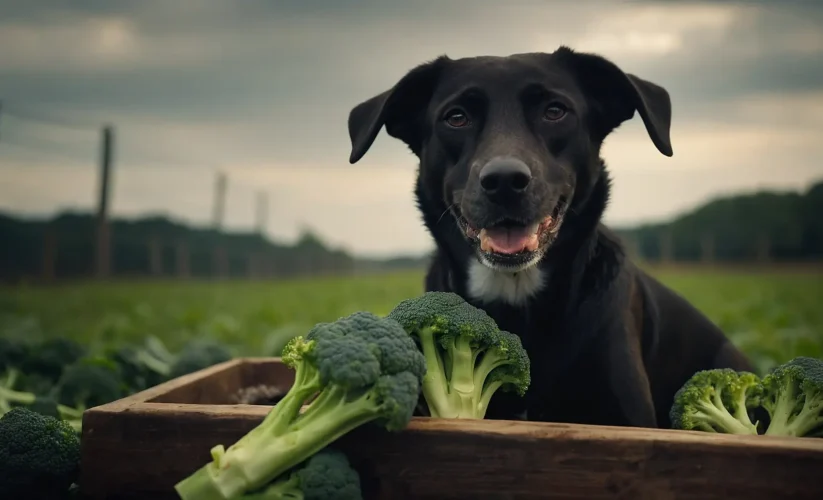Can Dogs Eat Asparagus?

When it comes to sharing our meals with our four-legged friends, many dog owners are cautious, and rightfully so. The question of whether dogs can eat asparagus is one that might not come up at the dinner table every day, but it’s certainly worth exploring. Asparagus, a perennial favorite among health-conscious humans, is packed with nutrients, but does it offer the same benefits to our canine companions? This blog post aims to shed light on this very question, diving deep into the nutritional benefits and potential risks associated with feeding asparagus to dogs. Whether you’re a new dog owner or have been sharing your life with dogs for years, understanding what’s safe and beneficial for them to eat is crucial for their health and happiness.
Is Asparagus Good for Dogs?
Asparagus is more than just a tasty vegetable—it’s a powerhouse of nutrients. It’s rich in fiber, vitamins A, C, E, and K, and contains various minerals like folate and potassium. For dogs, these nutrients can support immune health, aid in digestion, and promote healthy skin and fur. Fiber, for instance, is essential for maintaining a healthy digestive system, helping to keep bowel movements regular and prevent constipation.
Moreover, asparagus contains antioxidants. Antioxidants are vital in fighting off free radicals, which can damage cells and contribute to aging and diseases. The inclusion of asparagus in your dog’s diet, in moderation, can be a part of ensuring they receive a balanced and nutritious diet. However, it’s essential to introduce it slowly to their diet to monitor any adverse reactions, as with any new food.
The key to feeding dogs asparagus is moderation. While the vegetable is non-toxic and can offer health benefits, it should not replace a significant portion of their diet. Dogs are primarily carnivorous, and their main source of nutrition should come from high-quality dog food designed to meet their nutritional needs. Asparagus can serve as an occasional treat, not a staple.

Is Asparagus Bad for Dogs?
While asparagus poses no significant danger to dogs, there are a few considerations to keep in mind. Firstly, the tough, fibrous nature of asparagus stalks can be hard for dogs to digest, especially if they’re raw. Chewing raw asparagus can also be a challenge for some dogs, leading to potential choking hazards. Cooking asparagus can make it softer and easier to digest, but it’s important to cook it without any added oils, salts, or spices that can be harmful to dogs.
Another aspect to consider is the possibility of gastrointestinal upset. Some dogs may experience gas, diarrhea, or vomiting after eating asparagus, particularly if they eat too much or are not used to having it in their diet. Watching for any signs of discomfort or allergic reactions is important when introducing any new food to your dog’s diet.
Additionally, asparagus contains asparagine, an amino acid that can cause a distinctive odor in urine. While this is not harmful to dogs, it can be surprising to some owners.
Are Other Vegetables Safe For Dogs?
Vegetables can be a healthy addition to your dog’s diet, offering variety and essential nutrients. However, not all vegetables are safe for dogs. Safe options include carrots, which can be a crunchy, low-calorie treat; green beans, full of iron and vitamins; and pumpkin, which is high in fiber and can help with digestive issues. These vegetables should be served plain, without any added salts, sugars, or spices.
Conversely, some vegetables should be avoided. Onions, garlic, and chives can cause gastrointestinal irritation and lead to red blood cell damage. Grapes and raisins, though not vegetables, are often mistaken as safe but can cause kidney failure in dogs. It’s crucial to research or consult with a vet before introducing new foods into your dog’s diet.
Final Thoughts
Incorporating vegetables like asparagus into your dog’s diet can provide them with additional nutrients and variety. Asparagus, when prepared properly and served in moderation, can be a safe and healthy treat for most dogs. However, it’s essential to introduce any new food slowly and monitor your dog for any signs of adverse reactions.
Remember, while vegetables can complement a dog’s diet, they should not replace specially formulated dog food that provides the complete nutrition dogs need. Always consult with your veterinarian before making significant changes to your dog’s diet, especially if your dog has specific health concerns or dietary needs.
In summary, asparagus can be a good occasional treat for dogs, but it’s important to serve it cooked and plain, and to keep an eye on portion sizes. By being mindful of what we share with our furry friends, we can ensure they enjoy long, healthy, and happy lives by our sides.










